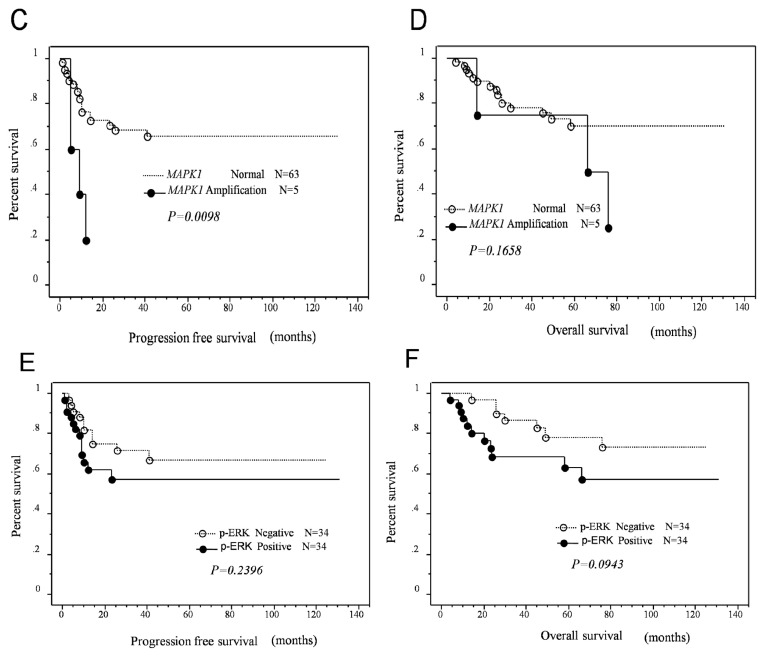Figure 2.
Relationship between KRAS/MAPK1 amplification or p-ERK expression status and progression-free/overall survival in patients who received primary cytoreductive surgery followed by standard platinum/taxane chemotherapy. (A,B) Kaplan-Meier survival analysis showed that KRAS amplification (solid line, n = 9) was not associated with a shorter progression-free/overall survival than absence of KRAS amplification (dashed line, n = 59; p = 0.5897, p = 0.8655, respectively, Log-rank test); (C) Kaplan-Meier survival analysis showed that MAPK1 amplification (solid line, n = 5) was associated with a shorter progression-free survival than absence of MAPK1 amplification (dashed line, n = 63; p = 0.0098, Log-rank test); (D) MAPK1 amplification (solid line, n = 5) tended to be correlated with a shorter overall survival than absence of MAPK1 amplification, but was not statistically significant (dashed line, n = 63; p = 0.1658, Log-rank test); (E,F) Positive p-ERK expression tended to be correlated with a shorter progression-free/overall survival than absence of MAPK1 amplification, but was not statistically significant (dashed line, n = 63; p = 0.2396, p = 0.0943, respectively, Log-rank test).


